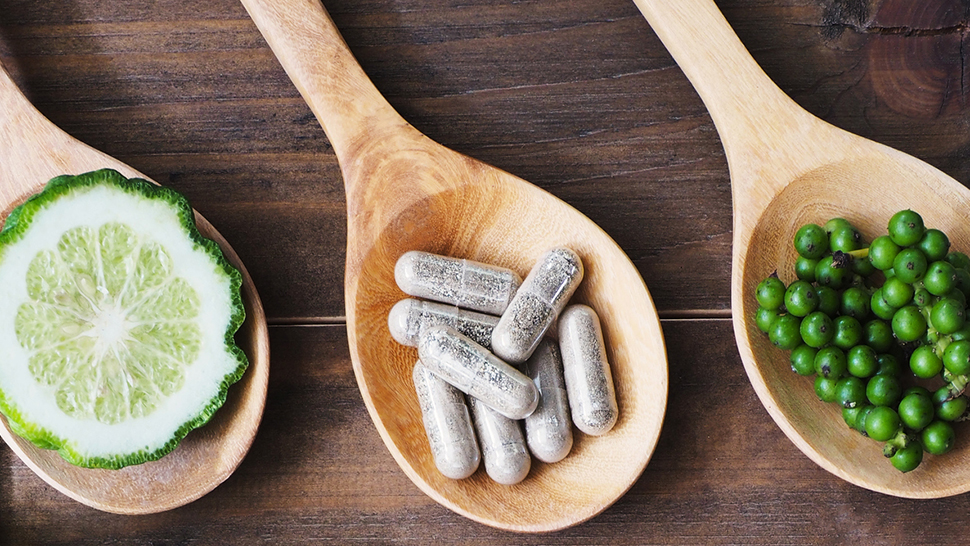
Good marketing, combined with the number of nutrition supplements available on the market, may have you second guessing whether it’s possible to get the nutrients you need from just food.
It’s well established that eating a variety of nutrients is an essential building block for good health. Yet, studies show that many Americans are not getting the daily servings of fruits and vegetables and low intakes of these nutrient-dense foods has led to underconsumption of some nutrients. But do you really have to eat Brussels sprouts and broccoli every day to achieve good health?
While it may be tempting to think that taking a supplement or sipping a daily tonic concoction will cover your health and nutrition needs, most often it’s not equivalent to consuming food! A nutrient-dense and varied diet provides benefits beyond just individual vitamins and minerals. Supplements provide individual or combinations of known nutrients but miss the mark when it comes to other important aspects of whole foods, such as fiber and phytonutrients, that play a major role in health.
In fact, many leading nutrition organizations do not recommend the regular use of multivitamins and supplements at the expense of consuming a variety of whole foods. The 2020-2025 Dietary Guidelines for Americans states that “because foods provide an array of nutrients and other components that have benefits for health, nutritional needs should be met primarily from foods and beverages — specifically, nutrient-dense foods and beverages.” One reason many authorities recommend whole foods is the concept of food synergy, which suggests that the nutrients found in whole, intact foods provide more nutritional benefits than their isolated nutrient counterparts because they work together to create a greater effect on health. Nutrition is also a relatively young science, so there are likely beneficial nutrients found in whole foods that have yet to be discovered and can’t even be derived in the form of a supplement.
While it is not generally recommended for the average person to rely on supplements over food, there may be a need to supplement at certain times throughout the life cycle or under certain medical conditions. It is best to discuss your individual nutrient needs with a registered dietitian nutritionist or your physician first before starting a supplement as some vitamins and minerals can be harmful in high doses or can interact with medications. Supplements could provide us with many of the known individual nutrients we need, but nourishing meals and snacks provide much more than just isolated nutrients. Filling your plate with fruits, vegetables, whole grains, healthy fats, and lean protein — and sharing around a table while connecting with family and friends — far outweighs any health benefits found in a pill or powder.